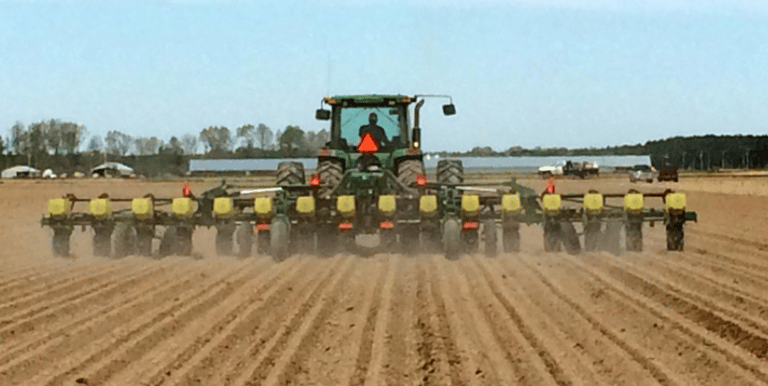Expert Soil Sampling for Accurate Depreciation Insights
At Hansen AG, we specialize in comprehensive biannual soil sampling services designed to accurately assess nutrient levels and evaluate soil depreciation within the growing season. Providing accurate reporting in accordance with Tax Code 180. Our approach ensures sustainable agricultural practices while optimizing tax benefits for our clients.


Soil Sampling Services
We provide biannual soil sampling to assess nutrient levels and determine soil depreciation accurately.




Fall Sampling
Spring Sampling
The fall sampling measures nutrient levels post-harvest, confirming soil depletion and supporting depreciation assessments.
Our spring sampling evaluates soil health at the start of the growing season for accurate analysis.
Fall Sampling

Overview of IRS Section 180
Internal Revenue Code (IRC) Section 180 allows taxpayers engaged in the trade or business of farming to elect to deduct expenses related to soil fertility restoration in the year they are incurred. This includes costs for fertilizers, lime, and other materials used to enrich or condition land used in farming.
Hansen Ag LLC's Reporting Compliance
Hansen Ag LLC's "Yearly Inspection Report" aligns with the provisions of IRC Section 180 as follows:
Identification of Soil Nutrient Depletion: The report provides detailed measurements of nutrient losses per acre, including Nitrogen (N), Phosphorus (P), Magnesium (Mg), Sulfate (SO₄), Zinc (Zn), Iron (Fe), Manganese (Mn), Copper (Cu), and Boron (B). This quantification is essential for substantiating the extent of soil fertility depletion.
Calculation of Restoration Costs: For each depleted nutrient, the report calculates the cost to restore soil fertility to pre-crop levels. These calculations are based on actual fertilizer prices paid by the landowner, ensuring that the expenses reflect real costs incurred.
Methodology Consistency: The report employs a consistent grid sampling methodology and utilizes a single accredited laboratory for analysis. This consistency ensures the reliability and accuracy of the data, which is crucial for IRS compliance.
Total Deduction Calculation: By summing the individual nutrient restoration costs and including additional expenses such as soil testing and lab fees, the report arrives at a total deduction amount. This comprehensive calculation supports the deduction claim under Section 180.
Documentation and Record-Keeping: The report includes detailed documentation of sampling methods, nutrient depletion calculations, and cost valuations. Proper documentation is vital for IRS compliance and substantiates the deduction claim.
Conclusion
Hansen Ag LLC's "Yearly Inspection Report" effectively aligns with the requirements of IRC Section 180 by providing a detailed and methodologically sound analysis of soil fertility depletion and restoration costs. The report's thorough documentation and adherence to consistent methodologies support the legitimacy of the deduction claim for soil fertility restoration expenses.
Amortizing the Section 180 Deduction Over Multiple Years
A common misunderstanding about the Section 180 deduction is that it must be claimed all in one year. The IRS allows Farmers, depending on how their CPA's structure of their farm’s financials, to choose not to deduct the full amount in the year the expense is incurred. You may amortize the deduction over multiple years, based on soil nutrient depletion.
Here's how the amortization typically works:
1st Year: Deduct 60% of the total soil nutrient restoration expense.
2nd Year: Deduct an additional 30%.
3rd Year: Deduct the remaining 10%.
This approach aligns the tax benefit with the actual decline in soil nutrients over time, offering a practical and compliant way to manage your tax deductions. Although our methodology allows farmers to be able to make a yearly deduction based on nutrient depletion that has been used within the growing season, if they elect to do so.
To learn more about our reporting please contact us
© 2025 Hansen Ag LLC. All rights reserved.
Disclaimer: Hansen Ag LLC provides nutrient depletion reporting only and does not offer tax, legal, or accounting advice. Please consult your CPA or financial advisor to determine if our reports are suitable for your tax filing under IRS Section 180.
